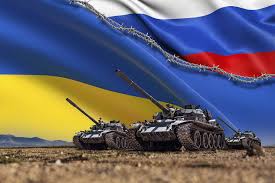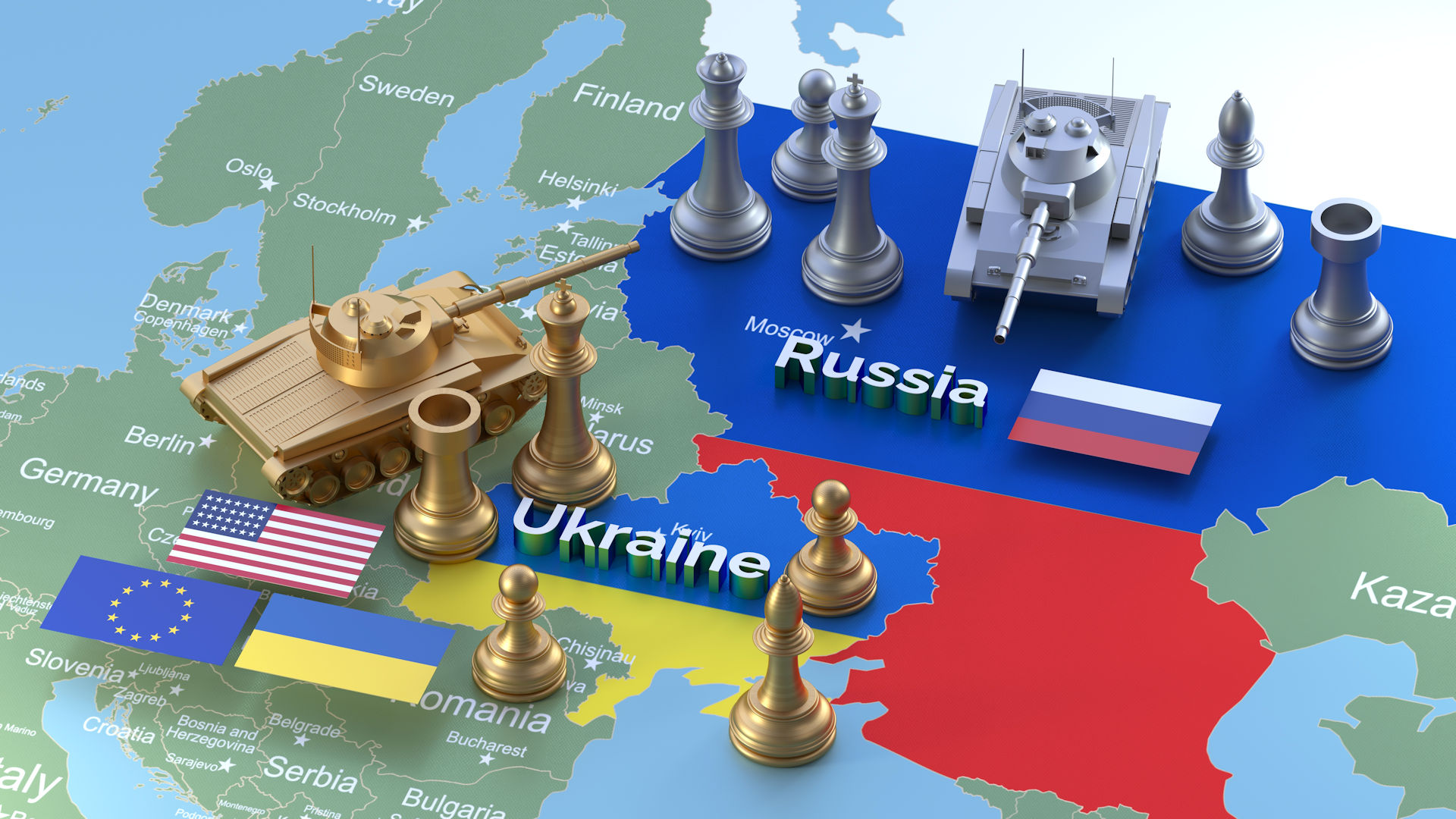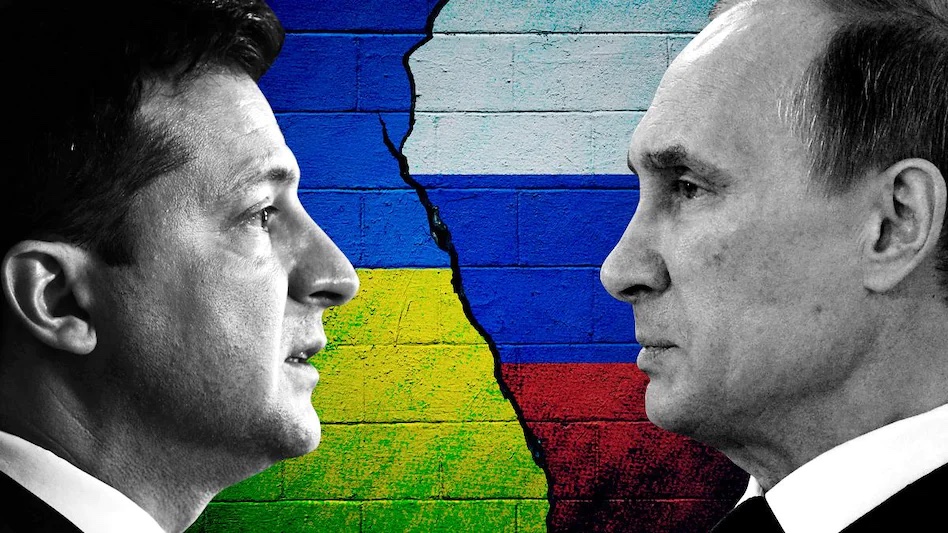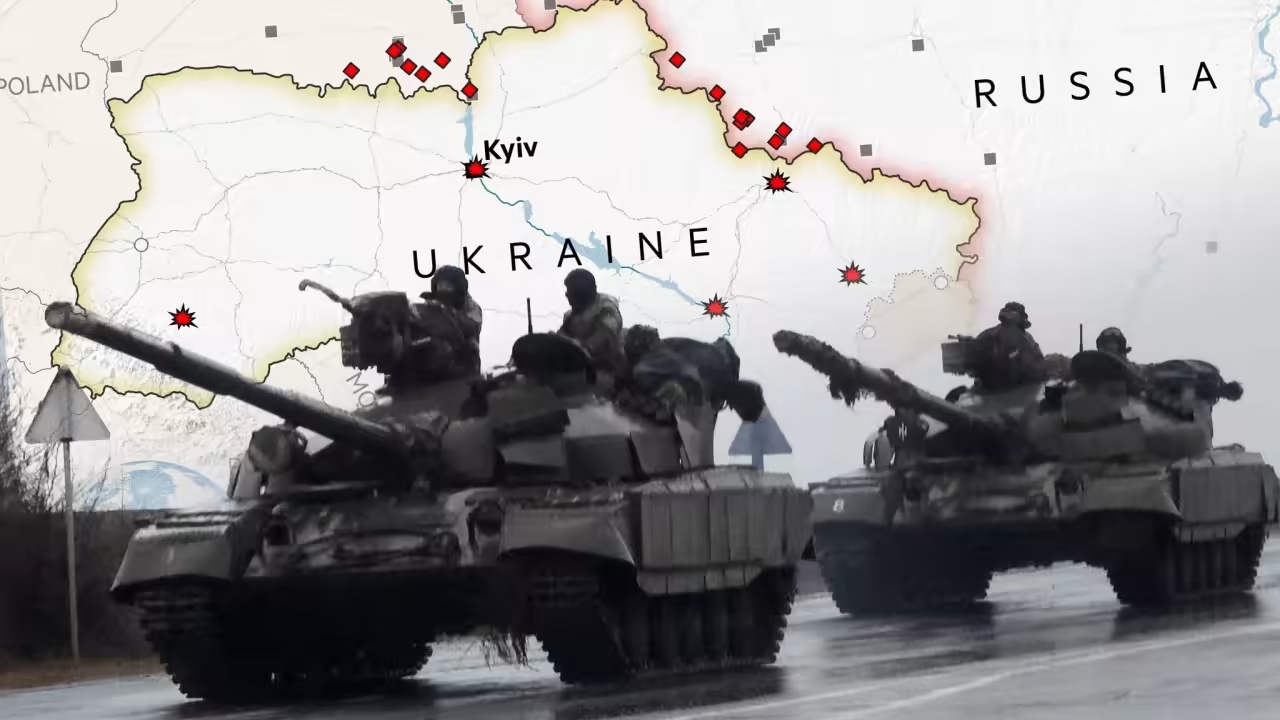Emir Hadikadunic || 10 April 2023
Abstract
 After over a year of war in Ukraine, some 50 Muslim-majority states from Morocco to Indonesia have revealed new foreign policy trends, raising important questions about the prevailing international order and the role of the Muslim world in it. The behaviour of these countries is striking in that many of them voiced neutrality towards both opposing parties: Russia, on one hand, and Ukraine and its supporters from the West, on the other. However, beyond their unified neutral stances, assertive foreign policy paradigms with broader international implications have emerged. Among others, Muslim-majority states are demonstrating a new readiness to “de-Westernise” their international affairs; establish strategic partnerships with other great powers; and avoid interfering in the domestic affairs of fellow Muslim-majority states or other authoritarian great powers. This article discusses their foreign affairs in two directions – descriptive and explanatory. The descriptive section highlights observable data, such as their foreign policy views, commitments, or actions to demonstrate their balanced approach to international affairs. The explanatory part questions this nature: Why, for example, do many Muslim-majority states carefully navigate between the US and Russia? Why do they pursue cautious neutrality, and diversify their relationships beyond Western partnerships?
After over a year of war in Ukraine, some 50 Muslim-majority states from Morocco to Indonesia have revealed new foreign policy trends, raising important questions about the prevailing international order and the role of the Muslim world in it. The behaviour of these countries is striking in that many of them voiced neutrality towards both opposing parties: Russia, on one hand, and Ukraine and its supporters from the West, on the other. However, beyond their unified neutral stances, assertive foreign policy paradigms with broader international implications have emerged. Among others, Muslim-majority states are demonstrating a new readiness to “de-Westernise” their international affairs; establish strategic partnerships with other great powers; and avoid interfering in the domestic affairs of fellow Muslim-majority states or other authoritarian great powers. This article discusses their foreign affairs in two directions – descriptive and explanatory. The descriptive section highlights observable data, such as their foreign policy views, commitments, or actions to demonstrate their balanced approach to international affairs. The explanatory part questions this nature: Why, for example, do many Muslim-majority states carefully navigate between the US and Russia? Why do they pursue cautious neutrality, and diversify their relationships beyond Western partnerships?
Keywords: Muslim-majority states and foreign policy; Muslim world and international politics; Muslim world and world order
Introduction
Muslim-majority states from Morocco to Indonesia have internal and external differentiations that preclude understanding them as a compact, singular entity. Given the distinct sectarian, ideological, or geopolitical contexts within which their foreign policies are often formulated, similar reference points have appeared only occasionally, and perhaps even superficially. In practical terms, this has made it difficult to find Muslim-majority countries which pursue like-minded policies motivated by similar considerations. Unifying incentives have been at play in only a few issues, such as the safeguarding of Islamic symbols from defamation at the international level.
 Recently, however, there has been a proliferation of similar foreign policy models among them. After over a year of war in Ukraine, this trend has raised important questions about the prevailing international order and the role of the Muslim world in it. The behaviour of these Muslim-majority countries is striking in that many of them voiced neutrality towards both opposing parties: Russia, on one hand, and Ukraine and its supporters from the West, on the other. Their approach is generally reminiscent of the first rule of the late American scholar Samuel Huntington, in which core states (core Muslim states, in this particular case) abstain from conflicts in other civilisations. Beyond their unified neutral stance on the war in Ukraine, assertive foreign policy paradigms, models, and visions with broader international implications, have emerged. Among others, Muslim-majority states now demonstrate a new readiness to “de-Westernise” their international affairs; establish strategic partnerships with other great powers; avoid interfering in the domestic affairs of fellow Muslim-majority states or other authoritarian great powers; and reduce their dependence on arms suppliers from the United States.
Recently, however, there has been a proliferation of similar foreign policy models among them. After over a year of war in Ukraine, this trend has raised important questions about the prevailing international order and the role of the Muslim world in it. The behaviour of these Muslim-majority countries is striking in that many of them voiced neutrality towards both opposing parties: Russia, on one hand, and Ukraine and its supporters from the West, on the other. Their approach is generally reminiscent of the first rule of the late American scholar Samuel Huntington, in which core states (core Muslim states, in this particular case) abstain from conflicts in other civilisations. Beyond their unified neutral stance on the war in Ukraine, assertive foreign policy paradigms, models, and visions with broader international implications, have emerged. Among others, Muslim-majority states now demonstrate a new readiness to “de-Westernise” their international affairs; establish strategic partnerships with other great powers; avoid interfering in the domestic affairs of fellow Muslim-majority states or other authoritarian great powers; and reduce their dependence on arms suppliers from the United States.
This study is divided into descriptive and explanatory parts. In the descriptive section, the main question is what guiding foreign policy principles have Muslim leaders adapted and expressed about the Russian invasion of Ukraine, and international affairs in general? What actions have these states taken — or not — at bilateral or multilateral forums? To answer these questions, the study relies on available data from different Muslim-majority states that highlight the regularity-seeking nature of their foreign policy and international affairs. More specifically, it collects, compares, and analyses their individual foreign policy views, commitments, and actions to reach any meaningful generalisation. Indeed, rather than individualising each Muslim-majority state and making specific case studies, this article seeks to identify patterns in their foreign policy actions. The explanatory part questions their uniformity: Why, for example, have Muslim-majority states rejected the Western narrative on Russia’s invasion of Ukraine? What underlying factors make it possible for them to pursue their neutral, independent, and assertive foreign policies? This part generalises their illiberal preferences for international and domestic order as central building blocks for their foreign policy, holding other internal and external causes largely consistent. It also demonstrates their tendency to favour multi-polarity, and opposition to the American-led liberal international order. At the domestic level, the study observes their tendency to prefer strong, authoritarian, and illiberal state orders.
Neutrality as a guiding foreign policy principle in 2022
 Presidents, prime ministers, foreign ministers or other foreign policy agents of Muslim-majority states have generally highlighted a single meaning in their official deliberations about Russia’s war in Ukraine. It is all about neutrality, whether “practical”, “cautious” or “uneasy”. Turkish President Recep Tayyip Erdogan, for example, said: “We cannot hold sides. We cannot take sides. And it wouldn’t be right for us to do that.”[1] Former Pakistani Prime Minister Imran Khan avoided holding either side responsible for the war. He said “countries like Pakistan should not pass any value and moral judgment on this”. They should be “non-aligned, neutral, and friendly to both”,[2] he added. Malaysian Foreign Affairs Minister Datuk Seri Saifuddin Abdullah, meanwhile, said in a written reply to the country’s parliament that Kuala Lumpur does not support either side of the conflict.[3] Riyadh, like other Arab capitals, generally views the war in Ukraine as a complicated European conflict which does not require Arab states to stand against Vladimir Putin.[4] Indeed, for the past year, it is hard to find any statement by Muslim political elites that backs the West’s — or Russia’s — stance on the war.
Presidents, prime ministers, foreign ministers or other foreign policy agents of Muslim-majority states have generally highlighted a single meaning in their official deliberations about Russia’s war in Ukraine. It is all about neutrality, whether “practical”, “cautious” or “uneasy”. Turkish President Recep Tayyip Erdogan, for example, said: “We cannot hold sides. We cannot take sides. And it wouldn’t be right for us to do that.”[1] Former Pakistani Prime Minister Imran Khan avoided holding either side responsible for the war. He said “countries like Pakistan should not pass any value and moral judgment on this”. They should be “non-aligned, neutral, and friendly to both”,[2] he added. Malaysian Foreign Affairs Minister Datuk Seri Saifuddin Abdullah, meanwhile, said in a written reply to the country’s parliament that Kuala Lumpur does not support either side of the conflict.[3] Riyadh, like other Arab capitals, generally views the war in Ukraine as a complicated European conflict which does not require Arab states to stand against Vladimir Putin.[4] Indeed, for the past year, it is hard to find any statement by Muslim political elites that backs the West’s — or Russia’s — stance on the war.
It is more difficult to find a general pattern with their votes in the United Nations when Russian aggression in Ukraine has been on the agenda. Indeed, votes by Muslim-majority states in the UN General Assembly in all the four rounds so far have appeared inconsistent. After predominantly backing the UN General Assembly Resolution demanding a Russian withdrawal from Ukraine in the early days of the conflict in March 2022, they gradually began to demonstrate a different tendency. In the UN General Assembly Resolution (ES-11/1) calling for Russia to be suspended from the Human Rights Council in April 2022, which received a two-thirds majority from those voting, the number of Muslim-majority states which supported it fell considerably, despite heavy lobbying from the US. Of the 10 states with the highest percentage of Muslims, none voted in favour. Among those with the largest Muslim populations, seven abstained, two voted against, and only Turkey voted in favour. In total, the number of Muslim-majority states that voted against, abstained, or were absent increased from 17 in the March 2022 vote to 39 in the April 2022 vote. However, in the third (October 2022) and fourth UN General Assembly votes (February 2023), most rejected Russia’s move to annex Ukrainian territory, or demanded a Russian withdrawal from occupied areas — their votes favouring Russia in the second round were balanced by votes that favoured Ukraine in the third and fourth round.
Moreover, votes by individual Muslim-majority countries in the UN General Assembly that occasionally favoured Ukraine were balanced by other specific moves or UN votes that favoured Russia. Unlike its vote favouring Kiev at the UN General Assembly— which is less consequential — the United Arab Emirates has not supported the UN Security Council Resolution that demanded a Russian military withdrawal from Ukraine. Indonesia voted in favour of a UN General Assembly Resolution that condemned Russia’s invasion, but refused to impose sanctions on Moscow or clearly condemn Mr Putin’s actions in Ukraine. Jakarta has also refused Ukrainian requests for weapons.[5] While Egypt voted in favour of a General Assembly Resolution demanding that Russia halt its use of force, its permanent representative made very clear that the country would not impose sanctions, adding that the resolution should not lead to turning a blind eye to the root causes of the crisis.[6]
 Minor exceptions to this “cautious”, “uneasy”, or “practical” neutrality exist, but only a few Muslim-majority states have openly backed either Russia or Ukraine/US/EU. Of those that have taken a side, their moves were largely expected, given their relationships with the US or Russia. For example, Syrian President Basher Al-Assad not only backed the Kremlin, but also recognised occupied provinces in Ukraine as Russian territory. Meanwhile, official statements from two Muslim-majority states in the Balkans, Albania, and Bosnia and Herzegovina, indicated that they supported the US-led liberal, international, and rules-based order. In at least three cases, reactions from Muslim-majority states illustrated deep internal divisions within them. The Houthi leadership in Yemen has openly backed the Russian side, including the recognition of occupied provinces in Ukraine as Russian territory. The internationally-recognised Yemeni government, however, denounced the invasion. Meanwhile, Hezbollah leader Hassan Nasrallah rejected the Lebanon Foreign Ministry’s statement that placed at least some blame on Russia, and blamed Washington instead.[7] He argued that “Moscow has the right to protect its borders and national security”. Bosnian support of Ukraine in all four UN votes generated serious internal opposition from Serb leader Milorad Dodik, who preferred neutrality at the state level, but personally sided with Mr Putin.
Minor exceptions to this “cautious”, “uneasy”, or “practical” neutrality exist, but only a few Muslim-majority states have openly backed either Russia or Ukraine/US/EU. Of those that have taken a side, their moves were largely expected, given their relationships with the US or Russia. For example, Syrian President Basher Al-Assad not only backed the Kremlin, but also recognised occupied provinces in Ukraine as Russian territory. Meanwhile, official statements from two Muslim-majority states in the Balkans, Albania, and Bosnia and Herzegovina, indicated that they supported the US-led liberal, international, and rules-based order. In at least three cases, reactions from Muslim-majority states illustrated deep internal divisions within them. The Houthi leadership in Yemen has openly backed the Russian side, including the recognition of occupied provinces in Ukraine as Russian territory. The internationally-recognised Yemeni government, however, denounced the invasion. Meanwhile, Hezbollah leader Hassan Nasrallah rejected the Lebanon Foreign Ministry’s statement that placed at least some blame on Russia, and blamed Washington instead.[7] He argued that “Moscow has the right to protect its borders and national security”. Bosnian support of Ukraine in all four UN votes generated serious internal opposition from Serb leader Milorad Dodik, who preferred neutrality at the state level, but personally sided with Mr Putin.
Endnotes:
[1] Judy Woodruff, “Turkey President Erdoğan on Russia’s invasion of Ukraine and the future of NATO,” PBS News Hour, September 19, 2022, https://www.pbs.org/newshour/show/turkey-president-erdogan-on-russias-invasion-of-ukraine-and-the-future-of-nato
[2] Imran Khan, “Town Hall Meeting with Imran Khan,” December, 2022, https://www.youtube.com/watch?v=pvyywLWPSSMhttps://youtu.be/2UElC_YZ0Eo.
[3] “Malaysia remains neutral for Russia-Ukrainian war,” Malaysian Reserve, July 18, 2022, https://themalaysianreserve.com/2022/07/18/malaysia-remains-neutral-for-russia-ukrainian-war/
[4] Giorgio Cafiero, “Analysis: The Russia-Ukraine war and the view from Saudi Arabia,” Aljazeera, October 24, 2022, https://www.aljazeera.com/news/2022/10/24/analysis-russia-ukraine-war-view-from-saudi-arabia
[5] David Hutt, “Indonesia juggles Russia, Ukraine and the West,” DW, July 7, 2022, https://www.dw.com/en/indonesia-jokowi-walks-tightrope-balancing-ties-with-russia-west/a-62396110
[6] Ehsan Salah, “Egypt, UAE, Saudi Arabia abandon neutrality in UN vote, condemn Russian invasion,” MADA, March 2, 2022, https://www.madamasr.com/en/2022/03/02/news/u/egypt-uae-saudi-arabia-abandon-neutrality-in-un-vote-condemn-russian-invasion/
[7] “Hezbollah Chief Says US to Blame for Ukraine Crisis,” Fars News, March 1, 2022, https://www.farsnews.ir/en/news/14001210000464/Hezbllah-Chief-Says-US-Blame-fr-Ukraine-Crisis
 Dr Emir Hadikadunic is a Senior Research Fellow at the Islamic Renaissance Front. He is currently visiting professor at the University of Sarajevo School of Science and Technology, and previously served as distinguished fellow at the Universiti Teknologi MARA (Malaysia) and visiting fellow at Istanbul Commerce University (Turkey). He has also served as Bosnian Ambassador to Iran (2010-13) and Malaysia (2016-2020). Dr Hadikadunic obtained a PhD in international relations from the International University of Sarajevo, and is the author of two books and several journal articles on peace-building, foreign policy, and international affairs. This essay first appeared in the Middle East Institute Perspectives, National University of Singapore at https://mei.nus.edu.sg/publication_category/mei-perspectives/
Dr Emir Hadikadunic is a Senior Research Fellow at the Islamic Renaissance Front. He is currently visiting professor at the University of Sarajevo School of Science and Technology, and previously served as distinguished fellow at the Universiti Teknologi MARA (Malaysia) and visiting fellow at Istanbul Commerce University (Turkey). He has also served as Bosnian Ambassador to Iran (2010-13) and Malaysia (2016-2020). Dr Hadikadunic obtained a PhD in international relations from the International University of Sarajevo, and is the author of two books and several journal articles on peace-building, foreign policy, and international affairs. This essay first appeared in the Middle East Institute Perspectives, National University of Singapore at https://mei.nus.edu.sg/publication_category/mei-perspectives/

